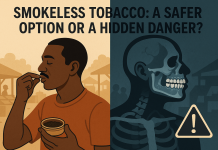Exclusive breastfeeding is not the same as predominant breastfeeding at all.
Exclusive breastfeeding means giving a baby only breast milk (with no other food or drink, not even water) from birth to 6 months of life; the baby is however allowed to receive medications, vitamins, minerals and oral rehydration solution if needed.
Predominant breastfeeding involves feeding the baby with breast milk, as well as giving the baby medications, oral rehydration solution, minerals, and vitamins when required. But it also involves giving the baby other fluids (such as fruit juice, water, and other water-based drinks) while the baby is less than 6 months old.
It has been found that breastfeeding infants exclusively for 6 months gives the best results. It has numerous benefits.
Breast milk is the best food for babies – it helps them grow and develop well. It is natural and provides all the nutrients and energy that the baby needs from birth till about 2 years of age. In the first six months, it provides all the nutrients and energy that the baby needs. In the second six months of life (that is, from age 7 months to 12 months), breast milk provides about half of the nutrients that the baby needs. And from age 13 months (above 1 year of age) to 24 months (2 years old), the baby still gets about one-third of the needed nutrients from the breast milk.
The World Health Organisation (WHO) and United Nations Children’s Fund (UNICEF) have given some recommendations to help mothers start and continue the exclusive breastfeeding for 6 months.
The recommendations are:
- Breastfeeding should be started within the first hour of life. In other words, the baby should be breastfed shortly after birth (before one hour has elapsed).
- The baby should be given only breast milk; nothing else (food or drink) should be given – not even water.
- The baby should be breastfed on demand. This means that the baby should be breastfed anytime the baby wants to eat, whether it is day or night.
- Pacifiers, bottles and teats should not be used.









